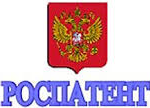 A couple of weeks ago I had the great honor to visit at WIPO with the heads of some of the PCT processing teams. These are the people at the International Bureau who interact with callers (applicants and patent practitioners) who have questions and problems relating to PCT. One of the things that they mentioned to me, that I found puzzling when I first heard it, is that in recent months they have received ever-increasing numbers of complaints from people who call to report that they try to send faxes to the International Bureau and are unable to do so. Upon reflection I now realize the likely cause of this problem. And it is definitely not that there is some recent malfunction in WIPO’s fax machines.
A couple of weeks ago I had the great honor to visit at WIPO with the heads of some of the PCT processing teams. These are the people at the International Bureau who interact with callers (applicants and patent practitioners) who have questions and problems relating to PCT. One of the things that they mentioned to me, that I found puzzling when I first heard it, is that in recent months they have received ever-increasing numbers of complaints from people who call to report that they try to send faxes to the International Bureau and are unable to do so. Upon reflection I now realize the likely cause of this problem. And it is definitely not that there is some recent malfunction in WIPO’s fax machines.
Continue reading “Why you probably can’t send international faxes any more”

 Readers will recall (perhaps from
Readers will recall (perhaps from 

 Today the search fee paid by a US filer for the Russian patent office as International Searching Authority increases from $449 to $482. (I first reported this
Today the search fee paid by a US filer for the Russian patent office as International Searching Authority increases from $449 to $482. (I first reported this